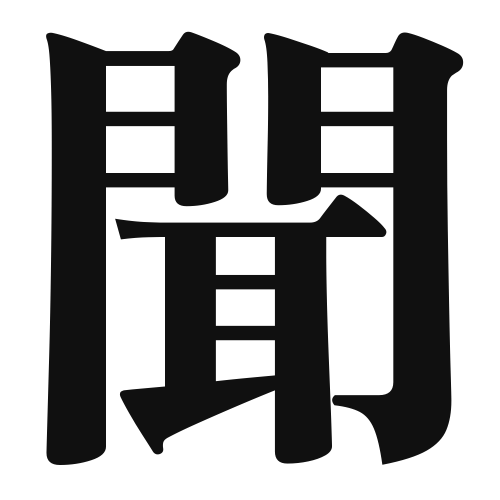1. Overview of Meaning
The kanji 聞 (pronounced “kiku” or “mon”) means “to hear” or “to listen.” It conveys the act of perceiving sound or paying attention to what is being said.
2. Formation and Radical
Formation of the Kanji: The kanji 聞 is a compound character (会意文字) that combines the elements for “ear” (耳) and “to ask” (問). This reflects the idea of listening and inquiring.
Radical: The radical for 聞 is 耳 (ear), which is associated with hearing and listening.
3. Examples of Usage
Common Words and Phrases: Some frequently used words that include 聞 are:
- 聞く (kiku) – to hear, to listen
- 聞こえる (kikoeru) – to be heard, to be audible
- 聞き取る (kikitoru) – to catch (what someone says)
Example Sentences in Daily Conversation:
- 音楽を聞くのが好きです。 (Ongaku o kiku no ga suki desu.) – I like to listen to music.
- 彼の話が聞こえますか? (Kare no hanashi ga kikoemasu ka?) – Can you hear what he is saying?
4. Synonyms and Antonyms
Similar Kanji: A similar kanji is 聴 (chou), which also means “to listen,” but it often implies a more active or focused listening, such as listening to music or a lecture.
Opposite Kanji: An antonym is 無視 (mushi), which means “to ignore,” indicating a lack of listening or attention.
5. Cultural and Historical Background
Relation to Japanese Culture: The concept of listening is highly valued in Japanese culture, where attentiveness and respect during conversations are important social norms.
Proverbs and Idioms: One common saying is “耳を傾ける” (mimi o katamukeru), which means “to lend an ear,” emphasizing the importance of listening to others.
